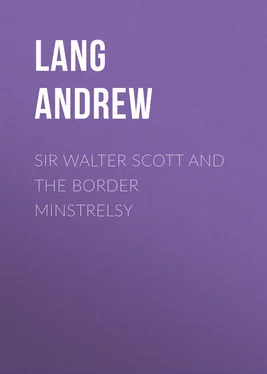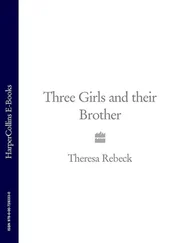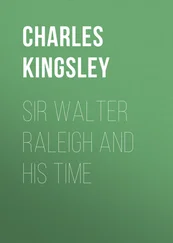Andrew Lang - Sir Walter Scott and the Border Minstrelsy
Здесь есть возможность читать онлайн «Andrew Lang - Sir Walter Scott and the Border Minstrelsy» — ознакомительный отрывок электронной книги совершенно бесплатно, а после прочтения отрывка купить полную версию. В некоторых случаях можно слушать аудио, скачать через торрент в формате fb2 и присутствует краткое содержание. Жанр: foreign_antique, foreign_prose, на английском языке. Описание произведения, (предисловие) а так же отзывы посетителей доступны на портале библиотеки ЛибКат.
- Название:Sir Walter Scott and the Border Minstrelsy
- Автор:
- Жанр:
- Год:неизвестен
- ISBN:нет данных
- Рейтинг книги:5 / 5. Голосов: 1
-
Избранное:Добавить в избранное
- Отзывы:
-
Ваша оценка:
- 100
- 1
- 2
- 3
- 4
- 5
Sir Walter Scott and the Border Minstrelsy: краткое содержание, описание и аннотация
Предлагаем к чтению аннотацию, описание, краткое содержание или предисловие (зависит от того, что написал сам автор книги «Sir Walter Scott and the Border Minstrelsy»). Если вы не нашли необходимую информацию о книге — напишите в комментариях, мы постараемся отыскать её.
Sir Walter Scott and the Border Minstrelsy — читать онлайн ознакомительный отрывок
Ниже представлен текст книги, разбитый по страницам. Система сохранения места последней прочитанной страницы, позволяет с удобством читать онлайн бесплатно книгу «Sir Walter Scott and the Border Minstrelsy», без необходимости каждый раз заново искать на чём Вы остановились. Поставьте закладку, и сможете в любой момент перейти на страницу, на которой закончили чтение.
Интервал:
Закладка:
“I ride single on my saddle,
For the flowers o’ the forest are a’ wede awa’”
The constant use of double rhymes within the line —
“At e’en, in the gloaming, nae younkers are roaming,”
an artifice rare in genuine ballads, might alone have proved to Scott that the poem of Miss Elliot is not popular and ancient.
I have cleared my conscience by confessing Scott’s literary sins. His interpolations, elsewhere mere stopgaps, are mainly to be found in Kinmont Willie and Jamie Telfer . His duty was to say, in his preface to each ballad, “The editor has interpolated stanza” so and so; if he made up the last verses of Kinmont Willie from the conclusion of a version of Archie o’ Ca’field , he should have said so; as he does acknowledge two stopgap interpolations by Hogg in Auld Maitland . But as to the conclusion of Kinmont Willie , he did, we shall see, make confession.
Professor Kittredge, who edited Child’s last part (X.), says in his excellent abridged edition of Child (1905), “It was no doubt the feeling that the popular ballad is a fluid and unstable thing that has prompted so many editors – among them Sir Walter Scott, whom it is impossible to assail, however much the scholarly conscience may disapprove – to deal freely with the versions that came into their hands.”
Twenty-five years after the appearance of The Border Minstrelsy , in 1827, appeared Motherwell’s Minstrelsy , Ancient and Modern . Motherwell was in favour of scientific methods of editing. Given two copies of a ballad, he says, “perhaps they may not have a single stanza which is mutual property, except certain commonplaces which seem an integral portion of the original mechanism of all our ancient ballads.. ” By selecting the most beautiful and striking passages from each copy, and making those cohere, an editor, he says, may produce a more perfect and ornate version than any that exists in tradition. Of the originals “the individuality entirely disappears.”
Motherwell disapproved of this method, which, as a rule, is Scott’s, and, scientifically, the method is not defensible. Thus, having three ballads of rescues, in similar circumstances, with a river to ford, Scott confessedly places that incident where he thinks it most “poetically appropriate”; and in all probability, by a single touch, he gives poetry in place of rough humour. Of all this Motherwell disapproved. (See Kinmont Willie , infra. )
Aytoun, in The Ballads of Scotland , thought Motherwell hypercritical; and also, in his practice inconsistent with his preaching. Aytoun observed, “with much regret and not a little indignation” (1859), “that later editors insinuated a doubt as to the fidelity of Sir Walter’s rendering. My firm belief, resting on documentary evidence, is that Scott was most scrupulous in adhering to the very letter of his transcripts, whenever copies of ballads, previously taken down, were submitted to him.” As an example, Aytoun, using a now lost MS. copy of about 1689–1702, of The Outlaw Murray , says “Sir Walter has given it throughout just as he received it.” Yet Scott’s copy, mainly from a lost Cockburn MS., contains a humorous passage on Buccleuch which Child half suspects to be by Sir Walter himself. 8 8 Child, part ix., 187.
It is impossible for me to know whether Child’s hesitating conjecture is right or wrong. Certainly we shall see, when Scott had but one MS. copy, as of Auld Maitland , his editing left little or nothing to be desired.
But now Scott is assailed, both where he deserves, and where, in my opinion, he does not deserve censure.
Scott did no more than his confessed following of Percy’s method implies, to his original text of the Ballad of Otterburne . This I shall prove from his original text, published by Child from the Abbotsford MSS., and by a letter from the collector of the ballad, the Ettrick Shepherd.
The facts, in this instance, apparently are utterly unknown to Lieutenant-Colonel the Hon. Fitzwilliam Elliot, in his Further Essays on Border Ballads (1910), pp. 1–45.
Again, I am absolutely certain, and can demonstrate, that Scott did not (as Colonel Elliot believes) detect Hogg in forging Auld Maitland , join with him in this fraud, and palm the ballad off on the public. Nothing of the kind occurred. Scott did not lie in this matter, both to the world and to his intimate friends, in private letters.
Once more, without better evidence than we possess, I do not believe that, in Jamie Telfer , Scott transferred the glory from the Elliots to the Scotts, and the shame from Buccleuch to Elliot of Stobs. The discussion leads us into very curious matter. But here, with our present materials, neither absolute proof nor disproof is possible.
Finally, as to Kinmont Willie , I merely give such reasons as I can find for thinking that Scott had “mangled” fragments of an old ballad before him, and did not merely paraphrase the narrative of Walter Scott of Satchells, in his doggerel True History of the Name of Scott (1688).
The positions of Colonel Elliot are in each case the reverse of mine. In the instance of Auld Maitland (where Scott’s conduct would be unpardonable if Colonel Elliot’s view were correct), I have absolute proof that he is entirely mistaken. For Otterburne I am equally fortunate; that is, I can show that Scott’s part went no further than “the making of a standard text” on his avowed principles. For Jamie Telfer , having no original manuscript, I admit decorative interpolations, and for the rest, argue on internal evidence, no other being accessible. For Kinmont Willie , I confess that the poem, as it stands, is Scott’s, but give reasons for thinking that he had ballad fragments in his mind, if not on paper.
It will be understood that Colonel Elliot does not, I conceive, say that his charges are proved , but he thinks that the evidence points to these conclusions. He “hopes that I will give reasons for my disbelief” in his theories; and “hopes, though he cannot expect that they will completely dispose of” his views about Jamie Telfer . 9 9 Further Essays , p. 184.
I give my reasons, though I entertain but slight hope of convincing my courteous opponent. That is always a task rather desperate. But the task leads me, in defence of a great memory, into a countryside, and into old times on the Border, which are so alluring that, like Socrates, I must follow where the logos guides me. To one conclusion it guides me, which startles myself, but I must follow the logos , even against the verdict of Professor Child, notre maître à tous . In some instances, I repeat, positive proof of the correctness of my views is impossible; all that I can do is to show that Colonel Elliot’s contrary opinions also fall far short of demonstration, or are demonstrably erroneous.
AULD MAITLAND
The ballad of Auld Maitland holds in The Border Minstrelsy a place like that of the Doloneia , or Tenth Book, in the Iliad . Every professor of the Higher Criticism throws his stone at the Doloneia in passing, and every ballad-editor does as much to Auld Maitland . Professor Child excluded it from his monumental collection of “English and Scottish Popular Ballads,” fragments, and variants, for which Mr. Child and his friends and helpers ransacked every attainable collection of ballads in manuscript, and ballads in print, as they listened to the last murmurings of ballad tradition from the lips of old or young.
Читать дальшеИнтервал:
Закладка:
Похожие книги на «Sir Walter Scott and the Border Minstrelsy»
Представляем Вашему вниманию похожие книги на «Sir Walter Scott and the Border Minstrelsy» списком для выбора. Мы отобрали схожую по названию и смыслу литературу в надежде предоставить читателям больше вариантов отыскать новые, интересные, ещё непрочитанные произведения.
Обсуждение, отзывы о книге «Sir Walter Scott and the Border Minstrelsy» и просто собственные мнения читателей. Оставьте ваши комментарии, напишите, что Вы думаете о произведении, его смысле или главных героях. Укажите что конкретно понравилось, а что нет, и почему Вы так считаете.









